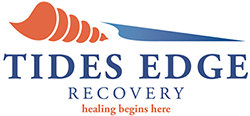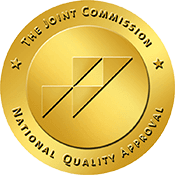When people experience chronic pain, doctors may prescribe painkiller medication. These medications help alleviate the pain, but they often lead to other problems. Since they are a schedule II narcotic medication, there is a high risk of abuse. But the majority of individuals who become addicted to pain medications have it happen because they misused their medications or simply had a genetic predisposition to developing a dependency. Opiate painkillers are very effective because they are potent. Thus, it is very easy to misuse, abuse, or become inadvertently addicted to them. Fortunately, our opiate detox center at Tides Edge Detox offers the kind of therapies and treatments that can help individuals heal and start on the path to recovery.
How Does Chronic Pain and Opiate Addiction Occur?
Chronic pain can be a debilitating condition. Many people have a low tolerance for pain, and suffering from it can cause much misery. When this occurs, they may reach out to a doctor for help. Consequently, the doctor prescribes them opiate pain medication. Examples of opiate medication are morphine and codeine.
The problem with opiate pain medication is that there is a high risk of abuse and addiction. The medication binds to the opioid receptors in the brain, making you feel euphoric, which leads many people to misuse the medication.
People may misuse an opiate mediation in various ways, such as:
- Taking too much. This can happen after your body becomes tolerant of the drug, and you need more to feel the same effects
- Taking it when you don’t really need it just to feel the euphoria
- Taking someone else’s medication
- Obtaining the drug from anyone other than a doctor or taking it in any way not prescribed
As you can see, there are many ways to abuse this medication and therefore become addicted to it.
What Happens During Opiate Addiction?
An opiate addiction from pain pills leads you to have behavioral changes as well as physical dependence. If you attempt to stop taking the medication without supervision and help, you will likely experience very uncomfortable withdrawal symptoms. Emotionally, you may feel irritable, depressed, and/or anxious during this time, as well.
Finally, when you become addicted to opiates, your behavior changes. You may not even notice it, but others who are close to you will. You may act guilty, moody, anxious, or depressed. The medication affects the brain, so mood swings are common. You will feel euphoric for a while, then come down from the medication and feel lethargic and down. These shifts in moods can cause family problems.
With the right treatment and support offered at our opiate detox center, individuals can not just identify the issues contributing to their addiction but also get the support necessary to heal.
Seek Help at the Opiate Detox Center at Tides Edge
At Tides Edge, you’ll meet our caring staff who is ready to help you on this new venture in life. You will have several treatment options from which to choose, such as:
- Residential drug rehab
- Intensive outpatient rehab
- Partial hospitalization rehab
- Outpatient rehab center
- Sober living program
We also offer a comprehensive dual diagnosis treatment program. This is for individuals with co-occurring disorders when addiction is present alongside a mental health concern. For many people, a substance use disorder arises because of unknown, underlying mental health issues like depression or anxiety. Similarly, individuals who are struggling with. a substance use disorder are at a higher risk of experiencing a mental health issue.
Don’t wait to get the help you need. You can overcome your problems by participating in a Chronic Pain and Opiate Addiction center. Contact us at 866.723.3127, and we’ll get you back on the pathway again.









